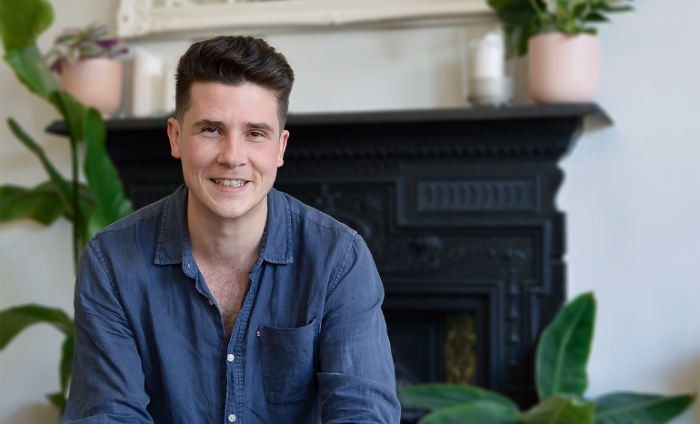
After graduating from UCL School of Management’s MSc Entrepreneurship programme in 2019, Dan Robinson built a successful career in research and consultancy at Beauhurst, a data provider specialising in the UK’s private companies, with a particular focus on equity-backed startups and scaleups. During his work on consulting projects, Dan identified a growing demand for data to better understand the UK financial services industry and began developing solutions to address this need.
Earlier this year, Dan launched Hackford, a startup designed to connect individuals and companies with financial services firms, providing tailored and streamlined datasets that address their specific needs. Though in its early stages, Hackford has already secured pilots with several organisations and has received financial support from the British Business Bank. In this blog, we caught up with Dan to find out more about his entrepreneurial journey so far, as well as the ways in which the MSc Entrepreneurship programme provided him with the network and tools to enter into this space. He also shares the advice he’d give to aspiring entrepreneurs and the challenges he has faced so far.
tell us about your business - what is hackford?
Hackford helps individuals and companies find and connect with financial services firms and their professionals. We’re building interconnected datasets to streamline what has traditionally been a time-consuming and manual data collection process. In practical terms, we gather information from sources like the Financial Conduct Authority, Companies House, public websites, and news articles. We then consolidate, clean, and refine this data to make it highly accessible and valuable for our users.
why did you start this company?
Since graduating from UCL School of Management’s MSc Entrepreneurship programme in 2019, I’ve been working at Beauhurst, a data provider focused on the UK’s private companies, especially equity-backed startups and scaleups. This experience showed me firsthand the value that a high-quality dataset can offer its users. I enjoy the challenge of tracking down and organising data into something greater than the sum of its parts—creating tools that help people do their jobs better. Making information both accurate and usable is a difficult challenge, but it’s one I find really interesting and rewarding.
what are you hoping your business will achieve?
I’m hoping to make it a great source of information for professionals in financial services. In the long term, I’d like Hackford to become the go-to destination for data on financial services firms—whether that’s delivered through spreadsheets, reports, or APIs.
Currently, the company consists of just me, a growing dataset, and a few early pilot customers. In the future, I’d love to build a small but dedicated team. I envision Hackford growing into a highly reliable authority in its space.
what has been the biggest challenge in your entrepreneurial journey so far?
One of the biggest challenges has been making the leap from full-time employment to entrepreneurship. It’s easy to become accustomed to the stability of a regular paycheck, so stepping out to do something different is not easy. Another challenge has been technical; I’m working with financial services data related to about 75,000 businesses.
Classifying these businesses into meaningful categories for Hackford’s users is a non-trivial data science and product problem. It involves understanding how people perceive and classify businesses and applying clustering and classification techniques to organise the data effectively.
what has been your greatest achievement?
My biggest achievement so far has been launching several pilot programmes with businesses that work in or with financial services firms. It’s gratifying that people are willing to jump in and start using the data, even though it’s early days.
Another significant achievement has been securing a Start Up Loan from the British Business Bank. This government programme provided crucial funding to help get me off the ground, and the application process was surprisingly straightforward and quick.
how did the msc entrepreneurship programme support the launch of your company?
The MSc Entrepreneurship programme has been instrumental in launching my company by helping me build a great network of like-minded peers and friends. Two good friends from the programme and I meet regularly to discuss businesses and ideas. They’re also working on their own businesses, so it’s great to hear different perspectives. The programme brings together interesting people from various industries and countries, and it’s fantastic to have that network beyond my time at UCL.
In terms of skills and knowledge, the programme provided a solid foundation. When I encounter problems, I know there are solutions out there. Even if I need to revisit material or frameworks, I have a starting toolkit of different approaches to tackle different challenges.
what do you enjoy about entrepreneurship?
What I enjoy most about working on my business is the problem-solving aspect. Every day is different, with new challenges that need solutions—whether they’re technical, marketing, branding, people-related, or sales issues. It’s satisfying to tackle a problem that initially stumps me and then, later on, figure it out and move on to even bigger challenges.
what is your top tip for aspiring entrepreneurs?
It feels early for me to be dispensing advice, but my top tip is to get started and test things out. Don’t just plan everything on paper or in your head—bring your ideas into the real world. Also, don’t be afraid to harness other people’s solutions early on. Sometimes it feels like you need to be entirely original, but many smart people have created things you can build upon. These can be a good way to get started and then you can build from there.
Find out more about UCL School of Management’s MSc Entrepreneurship programme.